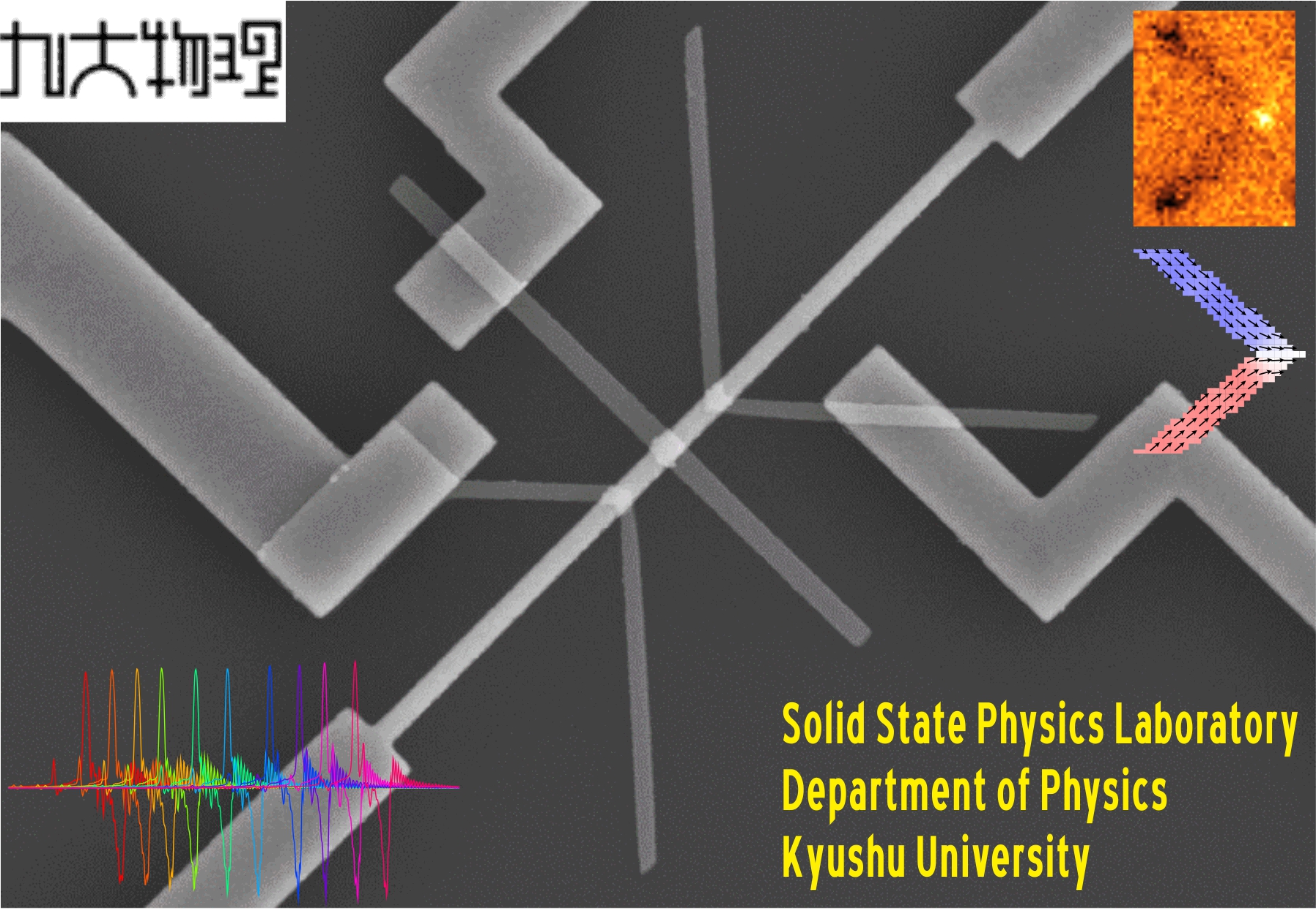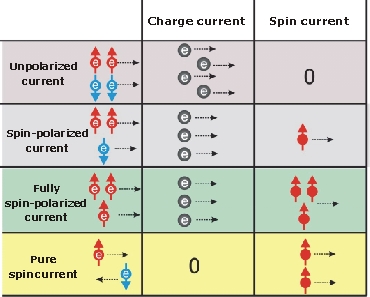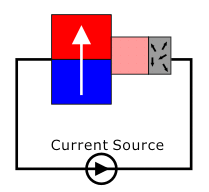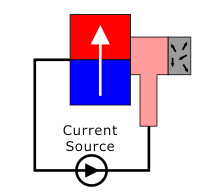
Research Interests
 Our laboratory (Solid State Physics Lab.) has been established
in April 2013 in Department of Physics, Kyushu University. We are interested in electronic
devices utilizing spin informations, so-called spintronics. Conduction electrons in
ferromagnets are spin polarized because of their spin-dependent conductivity. When an
electric field is applied in a ferromagnet, the spin current, which is a flow of spin angular
momentum, is generated in addition to the charge current. The spin current normally appears
in ferromagnets. However, by using a ferromagnetic/nonmagnetic junction or the spin-orbit
interaction, the spin current can be generated also in nonmagnets.
Our laboratory (Solid State Physics Lab.) has been established
in April 2013 in Department of Physics, Kyushu University. We are interested in electronic
devices utilizing spin informations, so-called spintronics. Conduction electrons in
ferromagnets are spin polarized because of their spin-dependent conductivity. When an
electric field is applied in a ferromagnet, the spin current, which is a flow of spin angular
momentum, is generated in addition to the charge current. The spin current normally appears
in ferromagnets. However, by using a ferromagnetic/nonmagnetic junction or the spin-orbit
interaction, the spin current can be generated also in nonmagnets.Spin-dependent transport phenomenon such as giant magnetoresistance (GMR) and spin Hall effect transform from the spin current (spin information of conduction electrons) into the charge current (electrical information) and vice versa. Moreover, the injection of the spin current into another ferromagnet transfers the spin angular momentum, resulting in the magnetization reversal of the ferromagnet. Thus, spin currents are very attractive both from a fundamental and a technological point of view. Therefore, the efficient manipulation of spin current is a key ingredient for future spintronic devices.
The spin current is usually superimposed on the charge current as in Table 1. However, as in Fig.1(b), the pure spin current, which does not include charge currents, can be generated by extracting only electric charges from the electron flow. We mainly focus on the innovation of novel spintronic devices by using generation, propagation, mixing and detection techniques of the spin currents, which have been established by us. Moreover, we are also interested in novel transport phenomenon related to pure spin currents.


Research topics
1. Developing generation, propagation and detection techniques for efficient manipulation of pure spin currents2. Exploring highly functional spintronic materials
3. Exploring novel physical phenomenon related to spin currents
4. Realizing innovative electronic devices based on pure spin currents
etc.


